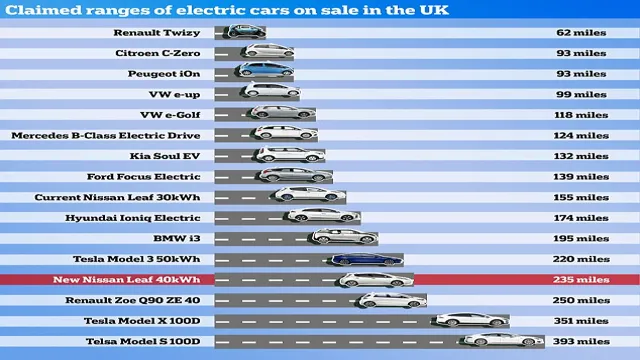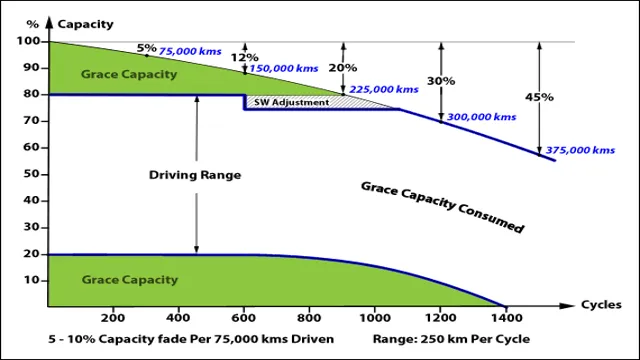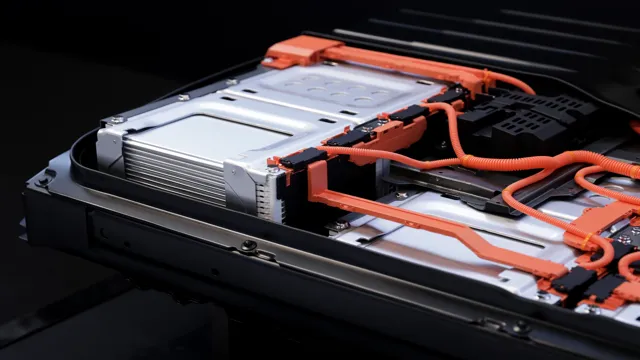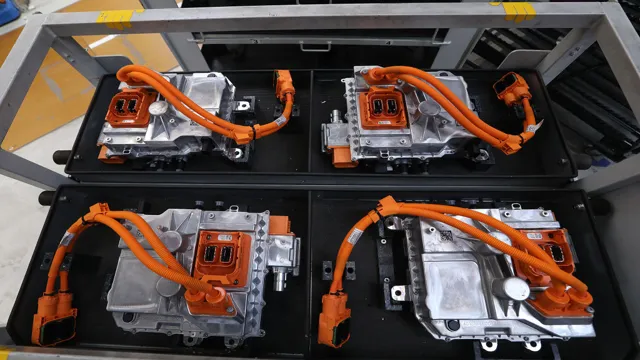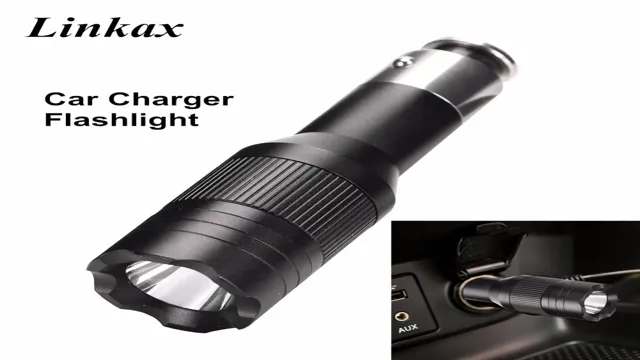Breaking the Range Barrier: How Far Can Battery Electric Cars Really Go?
Have you ever wondered how far an electric car can really go on a single charge? Well, wonder no more! The Electric Car Distance Race is a new challenge that puts electric vehicles to the test, pushing them to their limits and showcasing their range capabilities. This exciting competition sees drivers hitting the open road in a bid to travel the furthest distance possible on a single charge, highlighting just how far electric cars have come in recent years. With more and more countries pledging to become carbon neutral, electric vehicles are becoming an increasingly popular choice for eco-conscious drivers.
However, one major concern that most people have is the range of an electric vehicle. The Electric Car Distance Race aims to put these worries to rest by proving just how far modern electric vehicles can go. But this race isn’t all about breaking records and setting new benchmarks.
It’s also a celebration of the incredible achievements made in the world of sustainable transport. It’s a way to showcase the many benefits of electric vehicles, from the reduced dependence on fossil fuels to the lower levels of emissions produced. So whether you’re a seasoned EV enthusiast or simply curious about the future of sustainable transport, the Electric Car Distance Race is sure to leave you impressed.
Get ready to be amazed by the incredible feats achieved by these electric cars as they race towards a greener future.
Top Electric Cars And Their Range
When it comes to electric cars, one of the most important factors to consider is the distance that the battery can cover on a single charge. The range of electric vehicles has come a long way in recent years, with some models able to travel over 300 miles before needing to be recharged. The Tesla Model S, for example, has a range of up to 402 miles, making it one of the longest range electric cars on the market.
Another popular electric car, the Chevrolet Bolt, can travel up to 259 miles on a single charge. The Nissan Leaf, which has been a popular choice among electric car enthusiasts for years, has a range of up to 150 miles. There are also several newer models that have recently hit the market and have impressive ranges, including the Audi e-tron (222 miles) and the Ford Mustang Mach-E (300 miles).
As advancements in battery technology continue to be made, we can expect to see even longer ranges becoming the norm for electric cars.
Tesla Model S – 402 Miles
The Tesla Model S is one of the most popular electric cars on the market, and it’s easy to see why. With a range of up to 402 miles per charge, this car offers exceptional performance and convenience for drivers who are looking to make the switch to electric. But the Model S isn’t the only electric car with impressive range.
In fact, there are many other electric cars on the market that offer similarly long ranges, making it easier than ever to make the switch to sustainable driving. From the Audi e-tron to the Hyundai Kona Electric to the Kia Soul EV, there are many options available for drivers who want to reduce their carbon footprint and save money on gas. Whether you’re looking for a sleek and luxurious mid-size sedan or a practical and spacious crossover, there’s an electric car out there that’s perfect for your needs.
So why wait? Start exploring your options today and make the switch to electric!

Lucid Air – 517 Miles
The Lucid Air has set a new benchmark for electric cars by offering an impressive range of 517 miles on a single charge. This luxury sedan boasts a sleek design and state-of-the-art technology to offer customers a comfortable and efficient driving experience. But the Lucid Air is not the only impressive electric car on the market.
Many other models are also pushing the limits of range and performance, giving consumers more options than ever before. For example, the Tesla Model S offers a range of up to 402 miles, while the Porsche Taycan delivers up to 279 miles on a single charge. Electric cars are rapidly advancing in both style and functionality, and the race for longer and more reliable range is driving innovations in battery technology.
As more people make the switch to electric cars, the industry will continue to evolve, and we can expect even more impressive developments in the years to come.
Porsche Taycan – 270 Miles
If you’re looking for an electric car with impressive range, the Porsche Taycan might be just what you’re looking for. With a range of up to 270 miles, this sleek and stylish car is perfect for those who want to travel long distances without worrying about charging. But the Taycan isn’t the only electric car that offers impressive range.
In fact, there are plenty of other options out there that can go the distance. Take the Tesla Model S, for example. This car can travel up to 402 miles on a single charge, making it one of the longest-range electric cars on the market.
Alternatively, the Audi e-tron is a great option for those who want an SUV with plenty of space and a range of up to 222 miles. Whether you’re looking for a sports car, SUV, or something in between, there are plenty of electric cars out there to choose from that offer impressive range. So why not make the switch to electric today and never worry about running out of gas again?
Factors Affecting Electric Car Range
Electric cars have made a strong impression in the market as people around the world switch to environmentally friendly transportation solutions. However, one of the biggest factors affecting electric car range is the distance of the battery. The distance of battery electric cars has improved significantly over time, but it still varies widely depending on a variety of factors.
One of the most significant contributors to electric car range is the size of the battery. The larger the capacity of the battery, the further the car can go without needing a recharge. Other factors that impact the distance of battery electric cars include weather conditions, driving behavior, and age of the car’s battery.
Cold temperatures can cause the battery to drain faster, while aggressive driving can cause higher power consumption. Additionally, the age of a battery can cause a reduction in overall range as it loses capacity over time. Despite these limitations, electric cars are becoming more accessible and practical as technology improves and charging infrastructure expands.
Battery Capacity
Electric car range is one of the biggest concerns for consumers who are thinking of purchasing an electric vehicle. The battery capacity is one of the most significant factors that affect the range of an electric car, and it’s measured in kilowatt-hours (kWh). The higher the battery capacity, the farther the electric car can travel.
However, there are other factors that affect the range of electric vehicles too, including weather conditions, the weight of the vehicle, and driving habits. For example, hot or cold temperatures can significantly impact battery performance, and constant high-speed driving can drain the battery faster. Additionally, putting too much load on the car, such as carrying heavy cargo or driving up steep hills, can also impact the range.
Therefore, when considering the range of an electric car, it’s important to look beyond battery capacity and consider all the other factors that can impact the vehicle’s range.
Temperature
When it comes to the range of an electric car, temperature plays a significant factor. Extreme hot or cold weather conditions can drain the car’s batteries quickly, causing a shorter range than expected. For example, in cold weather, the batteries have to work harder to maintain its temperature, resulting in less energy available for driving.
The same is true for extremely hot weather with additional cooling required to keep the batteries from overheating. The ideal temperature range for optimal electric car range is between 20-25°C. Therefore, it’s important for electric car owners to consider the weather conditions before embarking on longer journeys, making sure they have enough charge to reach their destination.
It is also important to take into account the impact of temperature on the car’s overall efficiency and range when making purchasing decisions. Understanding how temperature affects electric car range can help owners plan accordingly and ensure they get the most out of their electric vehicles.
Driving Habits
Have you ever wondered why your electric car’s range sometimes seems to fall shorter than expected? Driving habits are a significant factor that affects electric car range. Aggressive driving, like sudden acceleration and hard braking, can greatly decrease your vehicle’s range. Similarly, driving at high speeds or uphill requires more energy and can drain your battery a lot faster than driving at a constant speed on flat terrain.
On the other hand, gentle acceleration, coasting, and driving at a moderate speed can help extend your range. Your electric car’s energy consumption also depends on external factors like weather conditions, road conditions, tire pressure, and the use of heating or cooling systems. By adapting your driving habits and taking these factors into account, you can improve your electric car’s range and enhance your driving experience.
Tips To Maximize Electric Car Range
If you own an electric car, you may be wondering how to maximize the distance of your battery’s charge. There are several tips you can follow to make the most out of your electric car’s range. First, always make sure your car’s tires are properly inflated.
Low tire pressure can reduce mileage. Second, avoid using your car’s heater or air conditioning as much as possible. These features can drain your battery’s power quickly.
Instead, wear warmer clothes or open the windows to stay cool. Third, try to drive efficiently. Avoid harsh braking or accelerating, as this can also reduce your car’s range.
Instead, try to maintain a steady speed and use cruise control when possible. Lastly, plan ahead for long trips. Research charging stations along your route and make sure you’re prepared to stop and charge if needed.
By following these tips, you can make sure your electric car’s battery lasts as long as possible.
Keep A Steady Speed And Avoid Rapid Acceleration
If you want to maximize the range of your electric car, there are a few tips that you should keep in mind. One of the most important is to maintain a steady speed and avoid rapid acceleration. This doesn’t mean driving at a snail’s pace, but rather keeping your speed consistent and avoiding sudden starts and stops.
Rapid acceleration can quickly drain your battery and reduce your overall driving range. Instead, try to anticipate traffic patterns and adjust your speed accordingly. By doing so, you’ll be able to conserve energy and make the most of your electric car’s battery life.
Remember, every little bit helps when it comes to extending your range, so adopt these simple habits and you’ll be able to go further on a single charge.
Plan Your Route And Charging Stops
As electric cars become increasingly popular, one major concern for drivers is maximizing range. To get the most out of your electric car on long journeys, it’s important to plan your route and charging stops ahead of time. Make use of online tools and smartphone apps that help you identify charging stations along your route.
Knowing where you’ll be able to recharge your battery allows you to plan your journey more efficiently and reduces the risk of running out of power. To further extend your electric car’s range, there are also some simple tips you can follow. For example, driving at a steady pace and avoiding abrupt stops and starts can help preserve battery life.
Similarly, keeping unnecessary accessories and devices turned off while driving can also conserve energy. With a little bit of preparation and some smart driving techniques, you can make your electric car go further and enjoy a more stress-free journey.
Minimize Use Of Heating And Air Conditioning
If you’re looking to maximize the range of your electric car, a simple yet effective tip is to minimize the use of your heating and air conditioning. These systems can heavily impact your battery’s performance, especially in extreme temperatures. On hot days, consider parking in a shaded area or using a sunshade to reduce the heat inside your car.
When it’s cold out, try wearing a warm jacket and using heated seats rather than turning up the heat. Additionally, pre-conditioning your car while it’s still plugged in can help regulate the temperature in your car before you start driving, preserving your battery’s power. By taking these small steps, you can increase your electric car’s range and make the most out of your battery’s charge.
Conclusion
In conclusion, the distance of battery electric cars may have been a point of concern for some in the past, but thanks to advancements in technology and the increasing availability of charging stations, that concern is becoming a thing of the past. As more and more drivers make the switch to electric, we’ll see a world where distance becomes less of an issue and the benefits of clean, efficient driving are enjoyed by all. So, let’s embrace this exciting new era of transportation and say goodbye to range anxiety once and for all!”
FAQs
How far can battery electric cars travel on a single charge?
The distance that a battery electric car can travel on a single charge depends on various factors, such as the capacity of the battery, driving habits, and weather conditions. However, most modern electric cars can travel between 100 and 300 miles on a single charge.
Can the range of battery electric cars be extended?
Yes, the range of battery electric cars can be extended by various means, such as installing a larger battery pack, improving aerodynamics, reducing weight, and optimizing the efficiency of the powertrain.
How long does it take to recharge an electric car battery?
The time required to recharge an electric car battery depends on the capacity of the battery, the charging rate, and the type of charger used. The fastest charging option is a DC fast charger, which can charge a depleted battery to 80% in 30 to 45 minutes.
How does weather affect the range of battery electric cars?
Extreme weather conditions, such as extremely low or high temperatures, can affect the range of battery electric cars. In cold weather, the range may be reduced due to the increased use of heating, while in hot weather, the battery may degrade faster. Proper battery management and temperature control can minimize the impact of weather on range.
